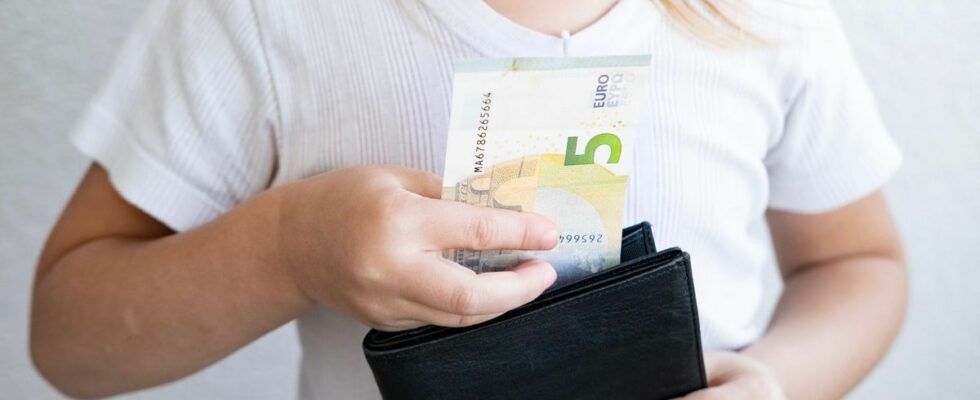Published on
updated on
Reading 3 min.
in collaboration with
Amélie Boukhobza (Clinical Psychologist)
While visiting friends or returning home, you notice something in your child’s belongings that does not belong to them. How should you react to this petty theft? Our psychologist Amélie Boukhobza answers.
But what on earth could have gone through his head? Your darling child, usually well-behaved, gave in to temptation and brought back a souvenir from your friends’ house. A souvenir… that he didn’t really ask for! Whether you’re the one who discovers it or your friends who call you, the situation is awkward for everyone. But how can you turn this petty theft into a fair learning situation? And how can you react concretely? Amélie Boukhobza, clinical psychologist, tells us what to do.
Talking to your child to define what stealing is (and getting a confession)
Finding out that your child has stolen an object, a ticket or anything else, especially from a friend’s house, is extremely destabilizing for any parent. “Faced with such a situation, I believe we must adopt an approach that combines firmness and kindness, to help the child as best we can to understand the seriousness of his actions and to learn the necessary lessons from it.” reveals our shrink.
First of all, we don’t yell at the child, but we take the time to talk to try to understand why the child stole.Younger people do not always grasp the concept of ownership. An object that attracts them may seem naturally accessible to them. For older people, theft can sometimes be the result of a pulsean irrepressible desire or even a need for attention”.
Be careful, it is common for children to start by denying their actions, especially if they feel ashamed or afraid. It is therefore not a question of trapping them, but of confronting them, giving them the opportunity to recognize what they have done. Getting them to confess to the theft is the first step in the process of making them responsible.
Make him understand the seriousness of his act
Once the theft has been admitted, it is then necessary to explain to him why this act is serious.For example, we can draw a parallel with our own objects so that he can project himself: “Imagine that someone takes your favorite toy without asking you, how would you feel?”
In addition to the seriousness of the theft itself, the fact that this act took place at the home of friends adds an extra dimension. Not only did he break a basic rule, but he also took the risk of breaking the trust that exists between families and sowing doubt in everyone around him.
The “fault” must therefore be judged within the family, that is to say, discussed (without going to court, let’s calm down!) “This shows the child that his actions have repercussions on the whole family and that it is important to take responsibility.” After that, it is also essential to find a balance: scolding the child without explanation can cause incomprehension and a feeling of shame. But being too lax could minimize the seriousness of the act.
“So we explain to him the consequences of his actions while emphasizing that everyone makes mistakes, the important thing is to recognize them and correct them. We must also reassure the child of his unconditional love.
As a parent, we must go to the friends involved to express our sincere apologies. Trust between friends is precious, and it is important to recognize that this incident may have shaken it. “Talking to other parents shows that you take the situation seriously and are committed to correcting the mistake. And you are transparent about what you are asking your child to do!”
After these steps, the return of the stolen object is mandatory, and it must be accompanied by an apology in person.“This process, although difficult, is a necessary step for the child to understand the consequences of his action.“emphasizes our psychologist. Depending on the age and the situation, we can obviously accompany him in this process or let him do it alone if he is mature enough. This gesture symbolizes the recognition of his fault and the desire to repair the error.
Now, if the theft is repeated, it may be necessary to seriously seek to understand what is happening. Consulting a professional may be recommended.

